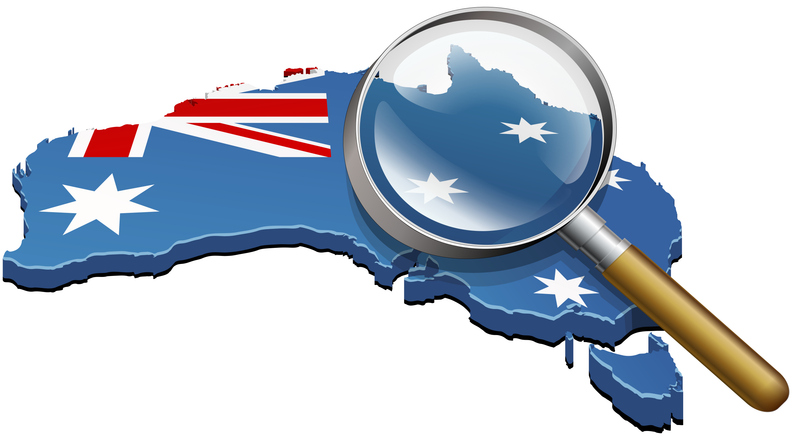A new politics is coming, ready or not
June 27, 2023
Prime Minister Albaneses commitment to the bogus AUKUS deal stands in stark contrast to the ethical leadership of the late Simon Crean. At the time, Mr Creans opposition to John Howards craven commitment to the Iraq war was a rare and beautiful exception to the tradition of old politics in Australia. Can the country find leaders who will free us from the old politics forever?
At the end of the Second World War, all the so-called democracies were dominated by a class of professional politicians coalescing around the established political parties. That class was and remains to this day overwhelmingly white, male and middle aged. To the world’s detriment, their politics have been anything but statesmanlike.
This has been the case in Australia from the time of Menzies. Since that time, Australian politicians have preferred to avoid progressive policies while maintaining a listless political status quo. As Donald Horne observed ironically in the 1960s, Australia had become a lucky country run by second rate people. That remains true today, except that many of those people are third rate, as the PwC debacle may indicate.
A vibrant manufacturing sector has never been encouraged to flourish in this country. Social policy continues to be mean-spirited and scrooge-like. Education policy is a major promoter of social inequality across the country. Security policy has resulted in clinging fearfully to an increasingly dangerous alliance with the USA. The mal-distribution of wealth in Australia makes the country look like a crony-driven third world economy.
This is the tradition of old politics in Australia, a politics of reacting to crises rather than anticipating them, much less addressing them intelligently. Consider the grotesquely unethical bipartisan approach to asylum seekers, and the abject failure of successive post-war governments to close the gap. The fact that the No case for the coming referendum appears to be gaining traction is evidence that the old politics indicates that Australia is a morally backward country. Peter Dutton is playing a lead role in maintaining our moralbackwardness.
Sadly, the tradition of old politics persists with the Albanese government today. Its few attempts at reforms so far have been limited by timidity and incrementalism, rather than making a bold break from the old politics. In fear of the Murdoch mob, it lacks ambition to free Australia from the grip of grifters exploiting regressive tax avoidance schemes and government subsidies to monster industries like the mining sector. And its powerful right wing is dominated by the likes of Richard Marles who is old politics writ large.
Albanese also personifies the old politics. His anxiety about being wedged on issues like the Stage 3 tax cuts is evidence of political weakness. He lacks the self-confidence of a Gough Whitlam or a Don Dunstan, who routinely risked their careers by advocating progressive policy reforms. His commitment to the bogus AUKUS deal stands in stark contrast to the ethical leadership of the late Simon Crean. At the time, Mr Creans opposition to John Howards craven commitment to the Iraq war was a rare and beautiful exception to the old politics.
The three mainstream parties in the federal parliament Labor, the Liberals, and the Nationals are all culturally entrenched in old politics. All of them are facing terminal declines in voting support. Their use-by date is approaching. The Greens are in danger of heading down the same road, while the dupes in One Nation and the United Australia party exemplify the most egregious features of old politics. Younger voters are turning their backs on all of them, in droves. A new generation of voters is demanding new politics.
Amid this chaos, there are glimmers of hope. Consider the impressive group of independents in the federal parliament, the so-called Teals, plus the excellent ACT Senator David Pocock. These people represent the beginnings of a wave of new politics that is beginning to break across the Australian political spectrum, engulfing the old politics. They maintain close connections to the electoral communities they represent; they are not beholden to self-serving party machines; they emphasise social justice, especially womens equality; their politics are principled and potentially nation-building.
So what will the wave of new politics be like? Its too early to be absolutely definitive, but there are straws in the wind that point to what is likely to occur as Australias political culture becomes more democratic and more socially and economically progressive. The new politics will reflect the thinking of more informed and concerned young voters, even as the numbers of old politics voters are in decline.
Here are just three broad examples of what the new politics could be like.
First, in economic policy, the new politics will want to fashion a robust mixed economy in which public owned enterprises will provide efficient essential services of the highest standard that are not simply focused on profiteering. These will include investing in public hospitals and local health centres, publicly run aged care facilities, a publicly owned national bank, properly resourced government schools, free university education for domestic students, and a publicly owned national airline and other public transport facilities. All of these institutions will compete with similar institutions in the private sector, effectively regulating the latter.
Second, the countrys new politics responses to the ravages of climate change will witness Australia becoming a respected international leader in clean energy provision and a major clean energy exporter, ending the toxic fossil fuel industries in this country forever. It will also see Australia at the forefront of international efforts to deal with climate change, no longer the recalcitrant laggard that it has been under the old politics.
Third and most importantly, the new politics will see Australia becoming a fully independent state in regional and global politics. This will mean ending what is absolutely the worst feature of the old politics by completely withdrawing from the ANZUS treaty, and all the encumbrances that it entails. (The latest encumbrance is Albaneses invidious commitment to the AUKUS deal.) The new politics will see Australia taking an active role in regional and international organisations that aim for cooperation among states to resolve global conflicts and inequalities, to address human rights issues with integrity, and to work for global peace.
Like it or not, and ready or not, these are the kinds of issues that younger voters are concerned about. The parties of old politics including the present Labor party are dangerously out of sync with this thinking. Those voters who anticipated the Albanese government would be a courageously progressive government have so far been disappointed. They are unlikely to be voting Labor next time.
Can the country find leaders who will embrace the thinking of the new politics and free us from the old politics forever? That surely is now the question facing contemporary Australia. Its answer is likely to be found in the election of many more Teals. If that means the death old politics, bring it on!
For more on this topic, we recommend:

